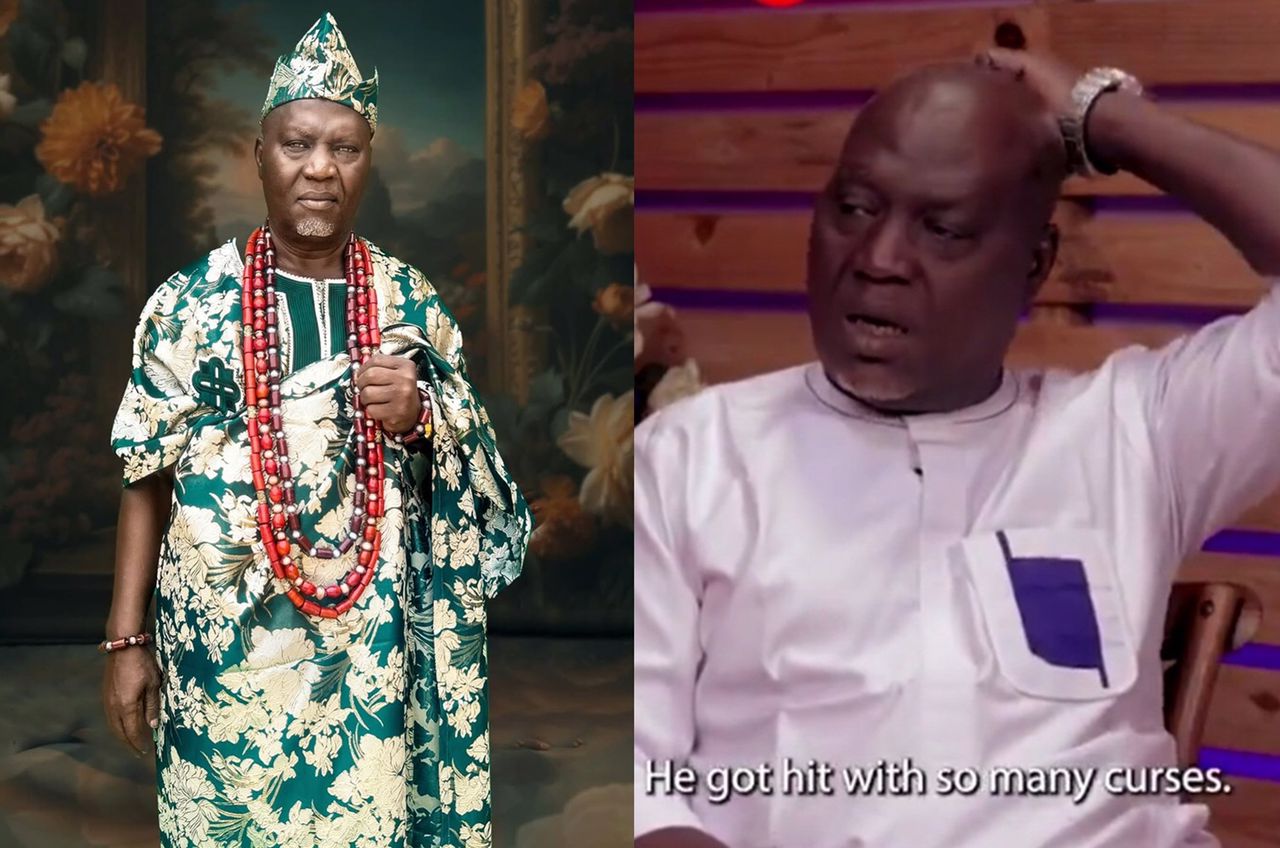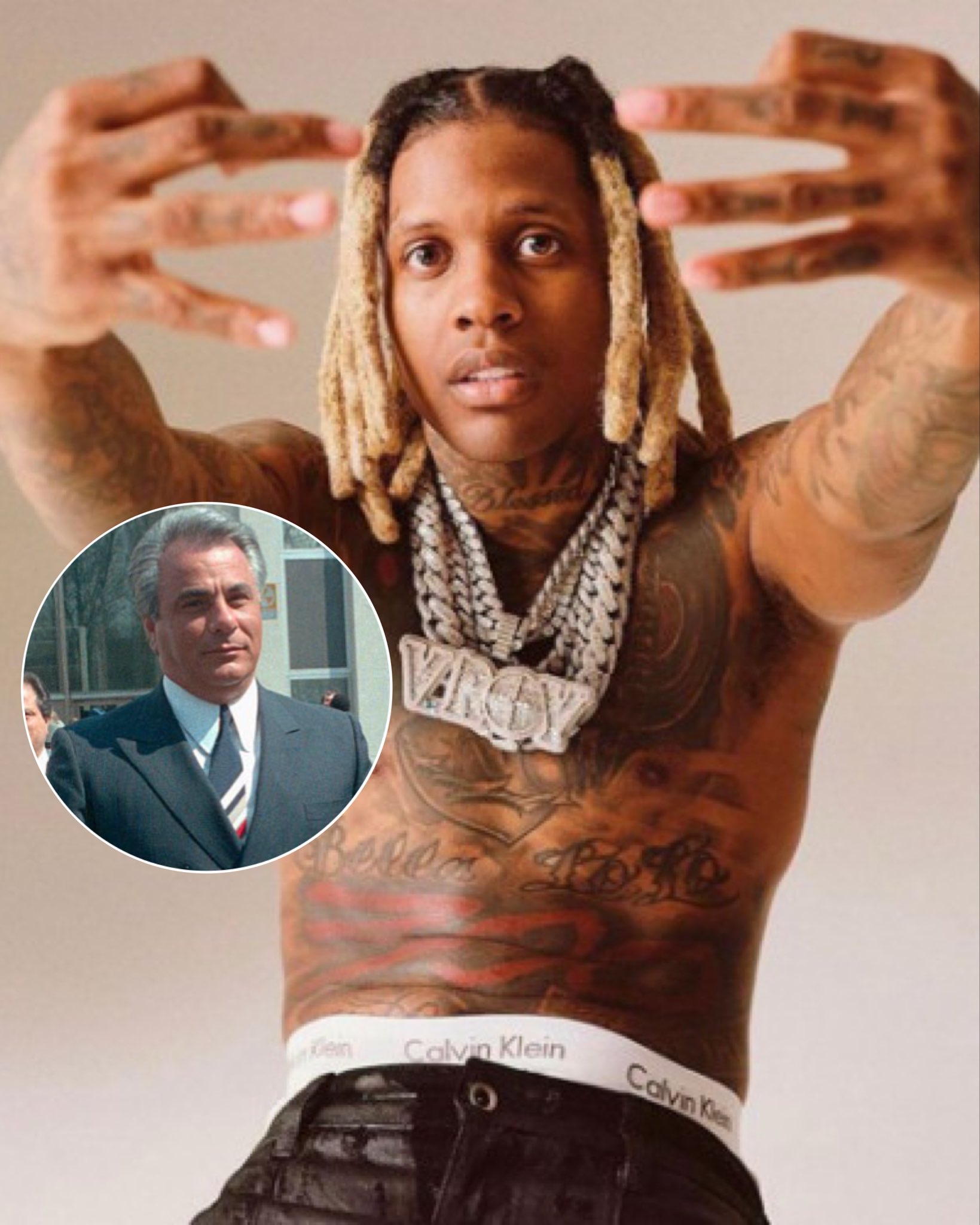
“We Got Nothing in Return”: Alapini Osa Opens Up on Regret, Olaiya Igwe’s Public Nudity, and the Lingering Fallout

Nollywood veteran Ganiu Nofiu, popularly known as Alapini Osa, has finally broken his silence over the deep disappointment he feels regarding the outcome of the intense campaign efforts he and some of his colleagues invested during the last political season. In a startling revelation, Alapini spoke candidly about how their loyalty and public support for certain political figures yielded absolutely nothing in return—no recognition, no gratitude, and certainly no reward. More troubling, he said, was the aftermath that followed, especially for his close friend and fellow actor, Olaiya Igwe, who drew national attention when he went completely stark naked at the beach to declare support for a candidate during the 2023 election period.
In his words, “Despite all our campaign efforts, we got nothing in return. My friend, Olaiya Igwe, who went stark n@ked at the beach was hit with so many c¥rses and hasn’t recovered till now.” The frank admission came during a recent interview where Alapini appeared visibly disheartened, his tone laced with regret and an almost spiritual weariness. What was meant to be an act of support and expression of conviction has now become a moment the entire Nollywood circle is quietly trying to forget, but can't.
Alapini, known for his strong presence in Yoruba traditional roles and deep cultural interpretations, has always commanded a level of respect in the industry. So when he speaks, people listen. And this time, his words carried the weight of personal pain, disillusionment, and a looming sense of betrayal. He recalled how many of them threw their faces, names, and legacies behind campaign banners, hoping that by using their platforms and popularity to support a politician, they would at least be acknowledged, or their industry would benefit through funding, policy reform, or inclusion. But instead, what came was a thick silence and a deeper realization that they had placed themselves in the line of public scrutiny for nothing.
“People insulted us. We were mocked. They said we had sold out, and maybe, in a way, they were right,” he said. “Because at the end of the day, what did we gain? Even a simple thank you never came.”
What makes this situation even more disheartening is the mention of Olaiya Igwe, a seasoned actor who took a drastic and controversial step by stripping completely naked and recording himself at the beach praying for a politician to win the election. The video went viral instantly and was met with overwhelming backlash. Social media erupted with condemnation, memes, and even spiritual warnings. Many believed that the act was not just inappropriate, but spiritually dangerous. Alapini disclosed that since that incident, Olaiya Igwe has been battling misfortunes and setbacks. “He’s not the same. He hasn’t been okay. People cursed him, and those curses weren’t ordinary.”
For a profession that has always walked the line between entertainment and spiritual caution—especially in the Yoruba movie industry where actors often depict traditional worship and metaphysical themes—the incident with Olaiya was not just a media scandal; it was a spiritual bombshell. Many fans, elders, and even colleagues advised cleansing rituals, prayers, and withdrawal from public stunts. But the damage had already been done.
The broader implication of this story is how much pressure celebrities now face to publicly declare political affiliations. In a country like Nigeria, where politics is both a career-ender and a life-changer, actors are often approached to use their influence to sway public opinion. Some oblige, hoping for contracts, appointments, or simply the chance to secure favor with those in power. But as Alapini’s account reveals, the promise is often an illusion.
“What people don’t understand is that we are human too. We are struggling like everyone else. So when politicians come and make promises, we believe them. We hope it would change something. But then you find out you were just used,” he added.
Alapini’s reflection has opened a new chapter in how Nigerian celebrities might think before tying their brand to political figures. It also draws attention to the moral, spiritual, and emotional costs that come with such endorsements. For Olaiya Igwe, the price appears to be even higher. “He regrets it,” Alapini stated quietly. “But how do you undo something the whole world has seen?”
There’s an uncomfortable silence surrounding Olaiya Igwe these days. Once a vibrant figure in both cinema and social commentary, he has retreated significantly from the limelight. Some say he’s trying to heal. Others believe he is going through a spiritual battle much deeper than what the eyes can see. What remains clear, however, is that actions taken in the name of politics have long shadows, and for public figures, those shadows are cast far and wide.
Alapini’s heartfelt disclosure has sparked mixed reactions online. While many commend him for speaking up and shedding light on what appears to be a common but silent struggle among entertainers, others have criticized the actors for placing too much faith in politicians in the first place. Social media has since become flooded with debates on whether celebrities should ever endorse candidates, and if they do, whether there should be any expectations in return.
“I’m not saying we won’t ever support anyone again,” Alapini noted toward the end of the interview. “But next time, we will be wiser. We will ask ourselves, ‘Is it worth it? Is it from the heart or from the pocket?’ Because when everything falls apart, it’s your face that the people remember—and your soul that pays the price.”
As the dust continues to settle from the last elections and as the reality of unmet expectations grows louder, one thing is now certain: the Nigerian entertainment industry is having a reckoning. Perhaps a lesson has been learned—not just about politics and promises, but about preserving dignity, legacy, and the spiritual weight of one’s actions. For Alapini Osa and his colleagues, the road to redemption may be quiet and long, but the conversation has finally begun.


